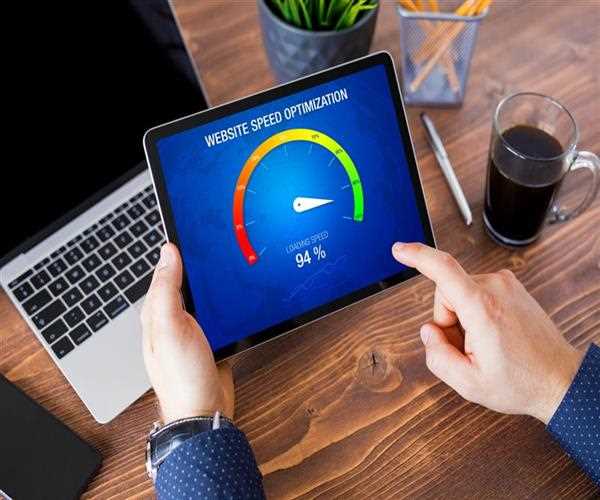
04-Nov-2022
Best Website Speed Test Tools & How To Speed Up Your Website
In today’s fast-paced world, people are used to getting what they want immediately. If they have to wait even a few seconds for a page to load, they’re likely to click away and find what they’re looking for elsewhere. The same is true of your website. If your site is slow, potential customers are going to bounce and you’ll miss out on conversions. Not only that, but Google also takes site speed into account when determining search rankings, so a slow site could also hurt your SEO efforts. Fortunately, there are ways to test and improve your website speed. In this blog post, we will explore the best website speed test tools and how you can use them to speed up your website.
What is website speed and why is it important
- Websites are getting larger and more complex. Images, videos, and other media files can slow down your site. Website speed is the measure of how fast a web page loads. A slow website can frustrate users and hurt your business.
- According to a study by Kissmetrics, 47% of people expect a web page to load in 2 seconds or less, and 40% will abandon a website that takes more than 3 seconds to load. Google has stated that for their internal pages, they aim for a 200ms delay.
- Website speed is important because it impacts user experience, conversion rates, search engine rankings, and bounce rate.
User Experience: A slow website can frustrate users and lead them to leave your site without completing an action such as making a purchase or reading an article. If you have ever waited for a slow website to load, you understand how frustrating it can be. Nobody wants to wait around for a slow website.
Conversion Rates: Website speed is also important for conversion rates. Studies have shown that even a one-second delay in page response can result in a 7% reduction in conversions. If your website takes longer than 3 seconds to load, you could be losing up to half of your potential customers!
Search Engine Rankings: In 2010, Google announced that site speed would be a factor in search engine rankings. They found that faster sites provide a better user experience, and so they wanted to reward those sites
Best website speed test tools
There are a number of website speed test tools available that can help you determine how fast or slow your website is. Here are some of the best website speed test tools:
1. Pingdom: Pingdom is a popular website speed test tool that lets you check the load time of individual pages on your website. It also provides detailed information on what factors are affecting your page load times.
2. GTmetrix: GTmetrix is another popular website speed test tool that provides detailed information on your website's performance, including page load times and fine-tuning recommendations.
3. WebPageTest: WebPageTest is a free website speed test tool that gives you insights into the performance of your website, including loading timings and optimization tips.
4. PageSpeed Insights: PageSpeed Insights is a free online tool from Google that analyzes the performance of your web pages and gives you suggestions on how to improve them.
5. YSlow: YSlow is a free plugin for Firefox and Chrome that allows you to analyze the performance of your web pages and find ways to optimize them.
How to speed up your website
- It is important to have a fast website because it improves user experience and can help with search engine optimization. There are a few things you can do to speed up your website.
- One way to speed up your website is to optimize your images. You can do this by compressing your images and using the correct file format. You can also use a content delivery network (CDN) to serve your images from multiple locations around the world.
- Another way to speed up your website is to minify your HTML, CSS, and JavaScript files. This means removing unnecessary characters from the code, such as whitespace and comments. You can also use a tool like Gzip to compress your files so that they take up less space on the server.
- You should also make sure that you are using a caching plugin on your WordPress site. This will store static copies of your pages and posts so that they can be served more quickly to visitors.
- Finally, you should consider upgrading to a faster web hosting plan. If you are on a shared host, switch to a VPS or dedicated server. If you are on a shared host, make sure that you are on a plan with unlimited bandwidth and storage space.
Conclusion
We hope you enjoyed our roundup of website speed test tools and tips on how to speed up your website. Website speed is an important factor in providing a good user experience for your visitors, so it's worth taking the time to ensure your site is running as efficiently as possible. With the right tools and some effort, you can make sure your website is loading quickly and smoothly for everyone who visits it.

SEO and Content Writer
I am Drishan vig. I used to write blogs, articles, and stories in a way that entices the audience. I assure you that consistency, style, and tone must be met while writing the content. Working with the clients like bfc, varthana, ITC hotels, indusind, mumpa, mollydolly etc. has made me realized that writing content is not enough but doing seo is the first thing for it.
Join Our Newsletter
Subscribe to our newsletter to receive emails about new views posts, releases and updates.
Copyright 2010 - 2026 MindStick Software Pvt. Ltd. All Rights Reserved Privacy Policy | Terms & Conditions | Cookie Policy